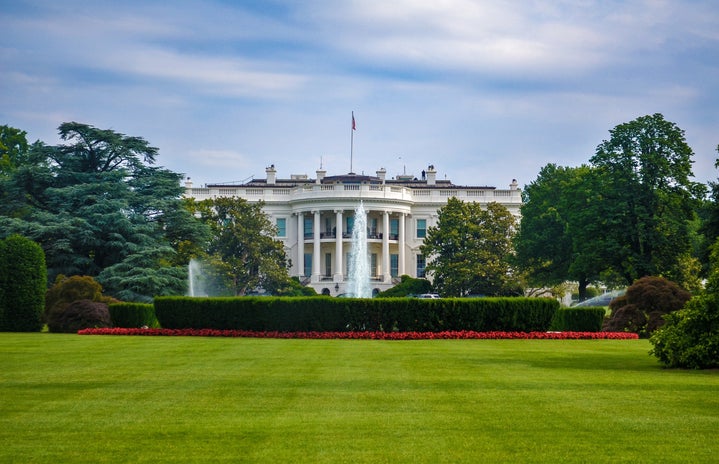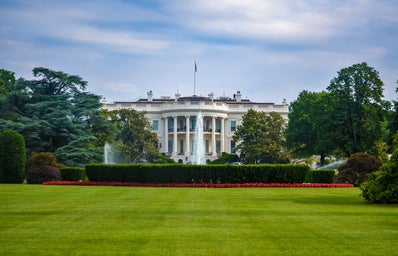For a long time, political cartoons have been a feature staple of many newspapers in the United States. Traditionally, these cartoons have been used to portray political figures and political agendas through a satirical point of view in order to point out hypocrisies and flaws in political reasoning. These cartoons are still popular today not only in newspapers but in many popular national magazines and online spaces. In recent years with the rise of social media, we have been seeing a rise of a whole new kind of political cartoon, that being memes. Often, we use memes to share messages between friends or just for a quick laugh, not thinking about the image we are consuming for any more than the few seconds it takes to take in and process the image. As an audience, we never really think deeply about what a meme can mean and the effects of what we are making memes out of can have on our society.
When we see another SpongeBob Squarepants themed meme on our twitter feeds followed by a meme created out of something a political figure has said or done we feel instinctively that there isn’t exactly the same weight, but we still laugh and retweet both. What does it mean for us if we are allowing what our lawmakers do and say pass by with the same level of consideration and action as a Spongebob Squarepants meme? In the past couple years, there has been meme after meme created out of different dumb things President Trump and other political leaders, from both the Republican and Democratic parties, have done. These memes quickly develop, we laugh at them, and then the meme dies, and with the death of the meme we never go back and think about the stupid thing that the leaders of our country did.
Courtesy: The New York Times
For example, in terms of memes of President Trump, last year after he made a typo in a tweet he sent out that read “Despite the constant negative press “covfefe” and everyone on the internet began laughing at the mistake and making fun of it. After the humor of the situation died down and a new funny thing came along, we all just forgot about it. We didn’t go back and think about how odd it was for the Twitter account for the President of the United States to randomly tweet out a nonsensical made-up word. We didn’t think about how odd it was that no one from the White House ever went back and deleted the tweet since there was obviously a mistake in it. We definitely didn’t go back and think about how weird it was that when asked about it, Sean Spicer, the press secretary at the time, only said, “The President and a small group of people know exactly what he meant.” Everyone moved on and accepted the situation as just another quirk of Donald Trump being our President.
Recently, another meme has grown out of the actions of President Trump after he congratulated Vladimir Putin for his re-election in Russia after President Trump was explicitly given a direct warning from his national security team in the form of a briefing with “DO NOT CONGRATULATE” written on it.
Courtesy: Max Burns
Turning a situation of a president explicitly ignoring a briefing from his national security team so that he could congratulate the winner of an election in a country that the United States currently doesn’t have the best relations with into a meme can take some of the weight away from the situation. If we’re all laughing at the situation then we may not be fully taking in the weight of the situation. We’re laughing so hard to an extent we forget why we were laughing the first place. When we don’t take a situation with the seriousness it needs to be taken with then the situation has an easier way of being manipulated out of the limelight and out of contention.
Of course, not every single political meme out there has been made about President Donald Trump. Recently, pictures of Paul Ryan kissing a fish from a tweet he originally made in 2013 have come back into popularity to mock. Before the 2016 presidential election, Hillary Clinton made a vine showing a koozie that read “more like Chillary Clinton, amirite?” and Clinton saying she was “just chilling in Cedar Rapids.” Everyone was having a grand time making fun of how hard it appeared Hillary Clinton was trying to relate to young voters. There were even more memes of Hillary Clinton made during the campaign after she said at a campaign stop “pokemon go to the polls.”
Courtesy: New York Magazine
Memes of political figures and political candidates hold the power to influence our perceptions of their personalities and their platforms. If we’re laughing at them then our ability to find them more likable raises as we are subconsciously associating a positive experience with the person. The memes can give political figures a level of charisma that we wouldn’t associate with them if they didn’t exist. At the same time, memes also have the power to create a negative view of a politician depending on who is making the meme and where it is going in the same way that political cartoons have the ability to.
As we keep creating more memes of political figures we sometimes feel that in doing so we are giving ourselves more control over the politicians. However, oftentimes as we are laughing at them it’s the politicians who are seizing the real power in the situations as they become greater immune to criticism and less accountable to the people. It can be easy to become immune to the negativity when it’s being received in the form of a gif on twitter rather than in a face-to-face confrontation at a press conference.



